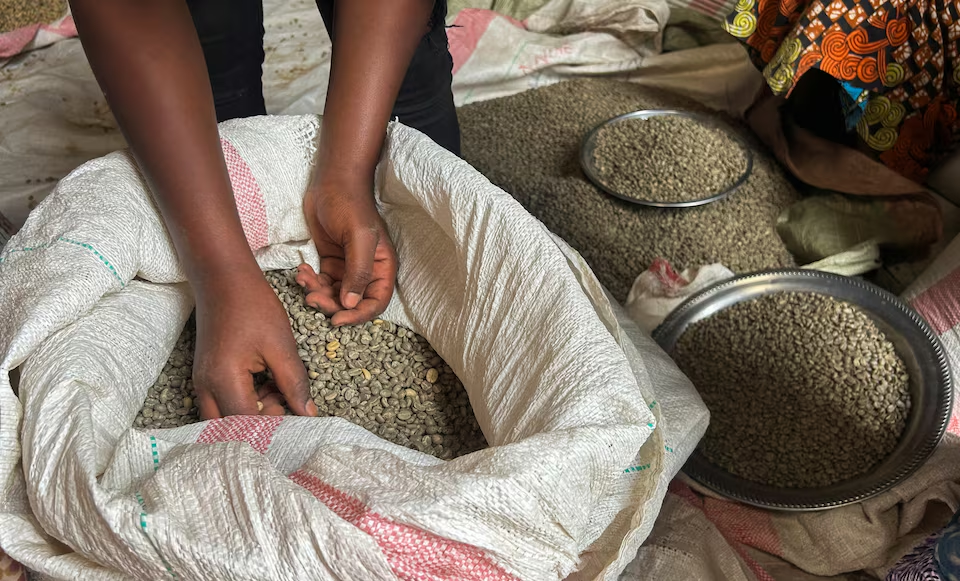News
Congo’s Coffee Farmers Fear War Will Undo Recent Gains

In the lush, hilly landscapes of eastern Democratic Republic of Congo, coffee crops are rotting and withering as years of conflict intensify, leaving farmers unable to tend their land this season.
Fighting between government forces and Rwanda-backed M23 rebels escalated earlier this year when the rebels seized key towns in North and South Kivu provinces—regions known for producing high-quality Arabica beans.
The renewed violence has claimed thousands of lives and displaced millions, including farmers. Trade routes have been blocked, threatening the remarkable recovery of Congo’s coffee industry after years of decline.
According to United Nations data, Congo’s coffee production exceeded 100,000 metric tons annually in the late 1980s but plunged in the 1990s as Congolese forces and armed groups fought devastating wars linked to the 1994 Rwandan genocide.
In the past decade, production has begun to recover, with output reaching just over 62,000 tons in 2023.
Cooperatives like Sopacdi in South Kivu were gaining international recognition for their premium coffee beans, while improvements in cultivation practices and deeper engagement with global markets were helping rebuild the sector.
Now, these achievements are at risk.
At the government-run coffee factory in Bukavu, South Kivu’s capital, drying yards stood empty when Reuters visited earlier this month.
Francois Kamble Nzanzu, director of the state agriculture office overseeing coffee exports, explained that although the coffee trees had bloomed well this year, the fighting and disruptions to banking services had severely impacted exports.
“We had a good harvest, but this year there weren’t many exporters,” Nzanzu said.
In Muganzu, South Kivu, farmer Mudekereza Kashugushu Celestin surveyed his devastated plantation where fallen trees and shriveled beans littered the ground.
“Nothing is left of the coffee I had. What remains is already rotten and dry,” he said.
The loss has left him struggling to support his family and pay his children’s school fees.
“I used to harvest about $300 worth of coffee every year, but this year I’ve only earned $50,” he added.
